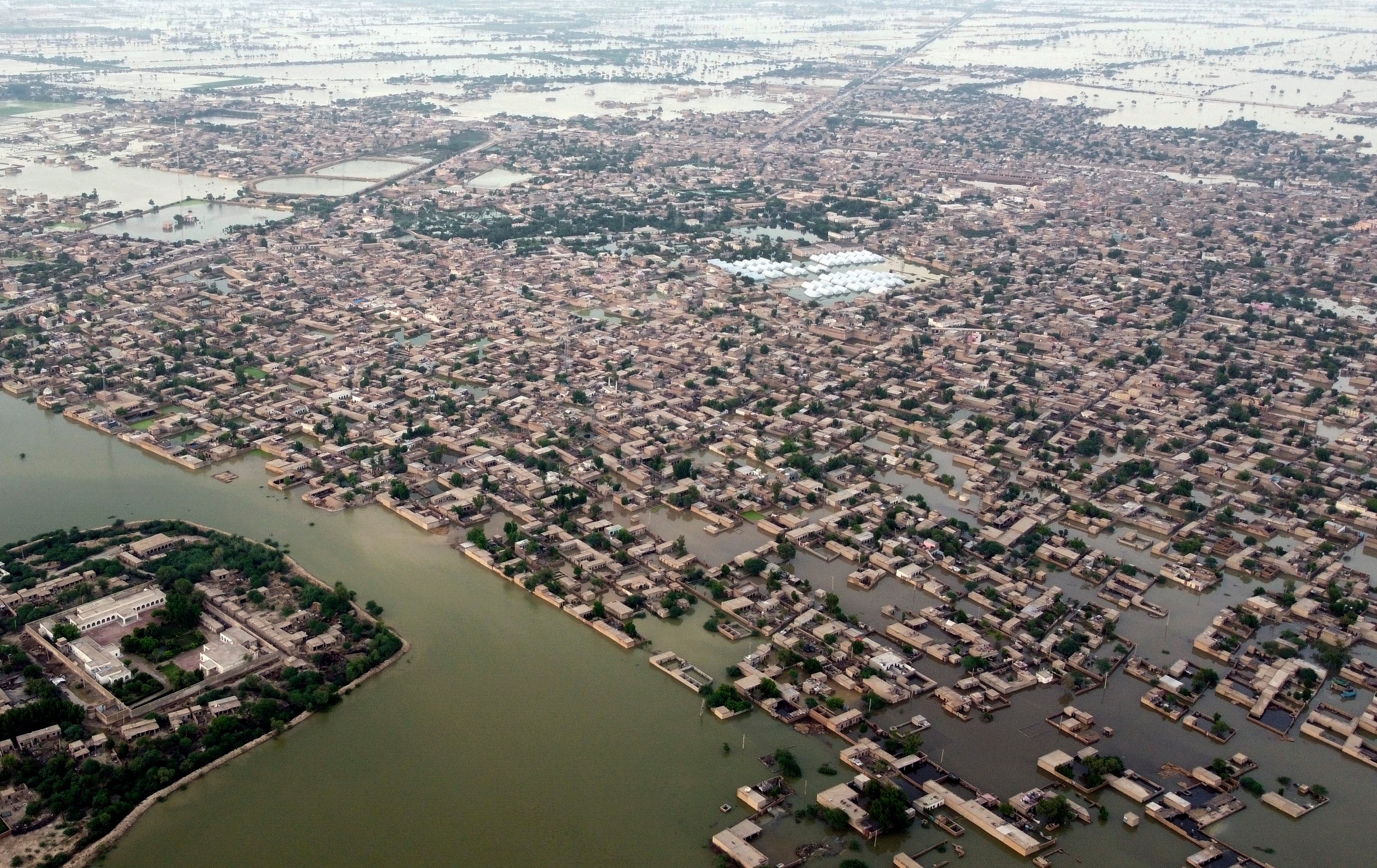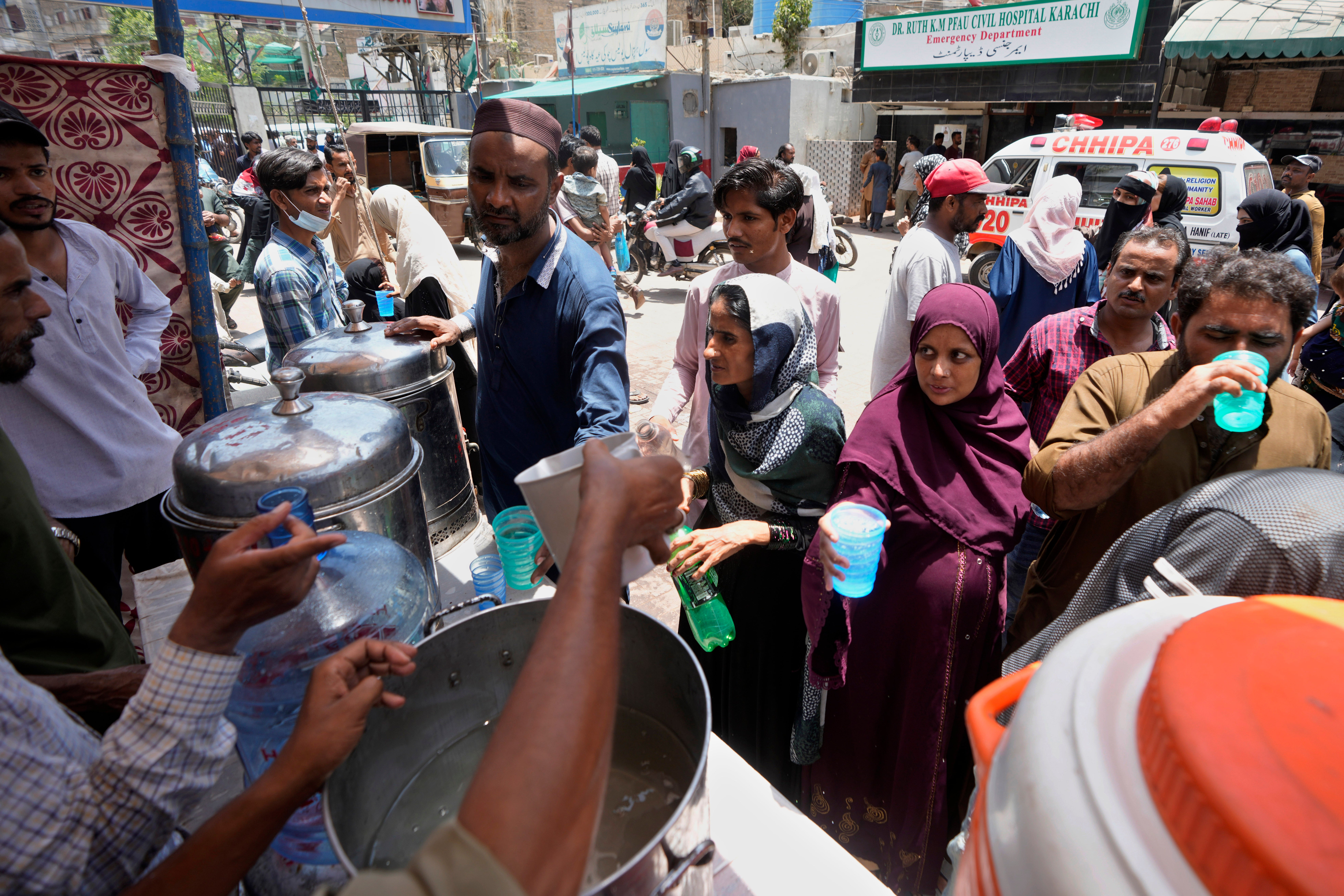Pakistan braces for heavy monsoon season after scorching heatwaves
Pakistan has already recorded its wettest April since 1961 as forecasters warn of more severe deluge
Your support helps us to tell the story
As your White House correspondent, I ask the tough questions and seek the answers that matter.
Your support enables me to be in the room, pressing for transparency and accountability. Without your contributions, we wouldn't have the resources to challenge those in power.
Your donation makes it possible for us to keep doing this important work, keeping you informed every step of the way to the November election

Andrew Feinberg
White House Correspondent
An estimated 200,000 people in Pakistan could be affected by the upcoming monsoon season, which is expected to bring heavier rains than usual, a top UN official warned on Thursday.
The United Nations, with help from local authorities, has prepared a contingency plan, with $40 million set aside to respond to any emergencies, said Mohamed Yahya, the newly appointed Resident Coordinator and Humanitarian Coordinator in Pakistan.
Mr Yahya told journalists in Islamabad that the weather forecasters in Pakistan are projecting above-normal rainfall in the coming weeks.
However, the rains would not be as heavy as in 2022 when devastating floods killed 1,739 people, destroyed 2 million homes, and covered as much as one-third of the country at one point.
Pakistan is one of the countries in the world most vulnerable to climate crisis, in part because of its immense northern glaciers, which are now melting as air temperatures rise. Warmer air can also hold more moisture, intensifying the rains of the monsoon.
Until recently, public opinion and even some government officials took little account of the possible negative impact from climate crisis on daily life. Pakistan's weather patterns have changed in recent years, forcing cities to strengthen their infrastructure and farmers to adapt their practices.
The 2022 floods caused more than $30 billion in damage to Pakistan's already cash-strapped economy.

Analysts and government officials say Pakistan in recent years failed to achieve goals for economic growth because of man-made disasters, which have repeatedly hit the country in the form of droughts, heatwaves and heavy rains, which badly damaged the road network, bridges, power system and other infrastructure.
Pakistan says despite contributing less than 1 per cent to carbon emissions worldwide, it is bearing the brunt of global climate disasters. This year, Pakistan recorded its wettest April since 1961, with more than double the usual monthly rainfall.

Mr Yahya said he was in contact with officials at Pakistan's ministry of climate crisis, who were preparing their contingency own plans for monsoon season, which in Pakistan runs from July to October.
Earlier this week, weather forecasters in Pakistan urged people to stay indoors as the third heatwave in a month began.
On Thursday, temperatures in various parts of Pakistan soared as high as 48 degrees Celsius (118 degrees Fahrenheit), forcing many people to stay indoors. Authorities are asking people to hydrate and avoid unnecessary travel.
South Asia is continuing to reel under intense heat with neighbouring India also recording temperatures over 50C. In April, large swathes of south, southeastern and western Asia suffered heatwaves that were driven by climate crisis.
A recent study by the United Nations children’s agency said that Pakistan could avert 175,000 deaths by 2030 by developing resilient energy systems to power its health facilities.
Subscribe to Independent Premium to bookmark this article
Want to bookmark your favourite articles and stories to read or reference later? Start your Independent Premium subscription today.
